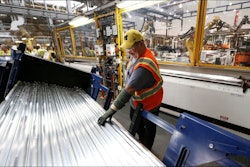I once worked for a manufacturing company that sold their products through two main channels. First, we had company sales offices located in major metro areas throughout the country. Second, we used resellers for other dedicated territories that covered smaller cities and larger rural areas. Within our company, we referred to these two channels as "branches" for the company-owned offices and "independents" for the resellers.
The two operations were as different as night and day. You could immediately tell which you were dealing with from the moment they answered their phones or picked you up at the airport during a visit. The differences were more than cosmetic. These differences extended into goals, strategies and organizational needs.
Two characteristics stood out head-and-shoulder above the others. These were:
- The branch office employees were consumed with the fact that “corporate” was visiting and making sure we didn’t carry bad reports back to the head-shed.
- The independent offices were businesses unto themselves and only had as much time for you as they had need of something you might be able to provide.
I think this is instructional in terms of answering how manufacturers would best treat their dealers. There is a lot of rhetoric about being “part of the family” or “being on the team” and other nice sounding phrases. The fact is, manufacturers are in one business and dealers are in another entirely different business.
ALSO READ: How to Use Telematics to Control Fleet Costs
The common element between the two is the end user. Both manufacturer and dealer want a happy end user. To that end, manufacturers should do everything they can to make it easy to profitably sell their product. Dealers should do everything they can to get that product into the hands of as many customers as possible.
Manufacturers should concentrate on helping their dealers accomplish that. How can they do that?
- Knowing what to sell – Manufacturers should equip dealers with the knowledge to properly address any challenge or requirement their end users might face. Products tend to be more and more complex and end user challenges tend to be more and more esoteric in nature. Manufacturers providing their selling channels with advanced configuration technology assures product is properly matched with application or need. This technology should guide the seller through the product requirements and specifications discussion in a way that virtually eliminates product configuration errors.
- Knowing how much it costs – Pricing is too frequently vague or situational with complex products and complex issues. It need not be this way. Pricing software linked into advanced configuration technology should be able to correctly price out even the most complicated and challenging products. Getting the price right from the start is essential in maintaining credibility between supplier and dealer and dealer and customer.
- Delivering as promised – The one thing that dealers cite most frequently as essential to their happiness is being able to rely on the manufacturers to deliver as promised. Manufacturers can’t allow their dealers to “hold the bag” by missing delivery dates or incessantly back ordering every item on an order. The ordering process should provide an acknowledgment with a bullet proof delivery date.
- Getting the right people into the conversation – In those cases where the end user can’t be helped with standard configurations, the manufacturer must be able to bring the right folks into the conversation to look at modification alternatives or special products. They should be able to quantify the impact on delivery requirements, cost of the product, availability of supplies and parts and be able to make a go/no-go decision about the special product quickly and decisively.
Manufacturers need to understand their relationship with sales is a partnership built on trust fostered by reliable performance over time. This relationship can be greatly enhanced via sales or dealer portal technology. Portal technology provides a customized link between your organization and theirs. The link will serve as an umbilical cord that expedites the answering of questions, the completion of transactions and eliminates the run-a-round futility of typical inter-organizational communications.
Providing your sales channel with specialized technology, designed specifically around their needs is the strongest statement you can make to your dealer partners about your commitment to their success. Helping them help your customers and helping them sell your products is what the relationship is all about.
Lou Washington is a manufacturing industry veteran with Cincom Systems.
To read more manufacturing and technology news, sign up for our newsletter. You can also follow Manufacturing Business Technology on Twitter @MBTwebsite.






















